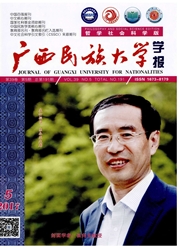
欢迎您!东篱公司
退出

 中文摘要:
中文摘要:
以贵州安顺屯堡“小姨婊”为倒,探讨亲属称谓在旅游开发中作为连接主/客、进行好客表达的符号介质的品性,并从人类学的角度考察旅游开发过程中亲属称谓制度的资本化现象及可能存在的问题。认为亲属称谓被作为表达好客的旅游资源进行开发,往往带有符号化、简单化倾向,并隐含着性别、权力等话语色彩。
 英文摘要:
英文摘要:
This paper is going to discover the nature of shared kinship ter- minologies that connect hosts and guests together and express hospitality in tourism business by a case study from Anshun Tunpu region in Guizhou. China. The phenomenon of capitalizing kinship system to adapt tourism business and its possible consequences will be discussed from anthropological perspectives. From the case study, we can see that the exploitation of kinship terminologies to show tourist hospitality has a tendency of symbolization and simplification and implies subtle coloring of gender and power.
 同期刊论文项目
同期刊论文项目
 同项目期刊论文
同项目期刊论文
 期刊信息
期刊信息
